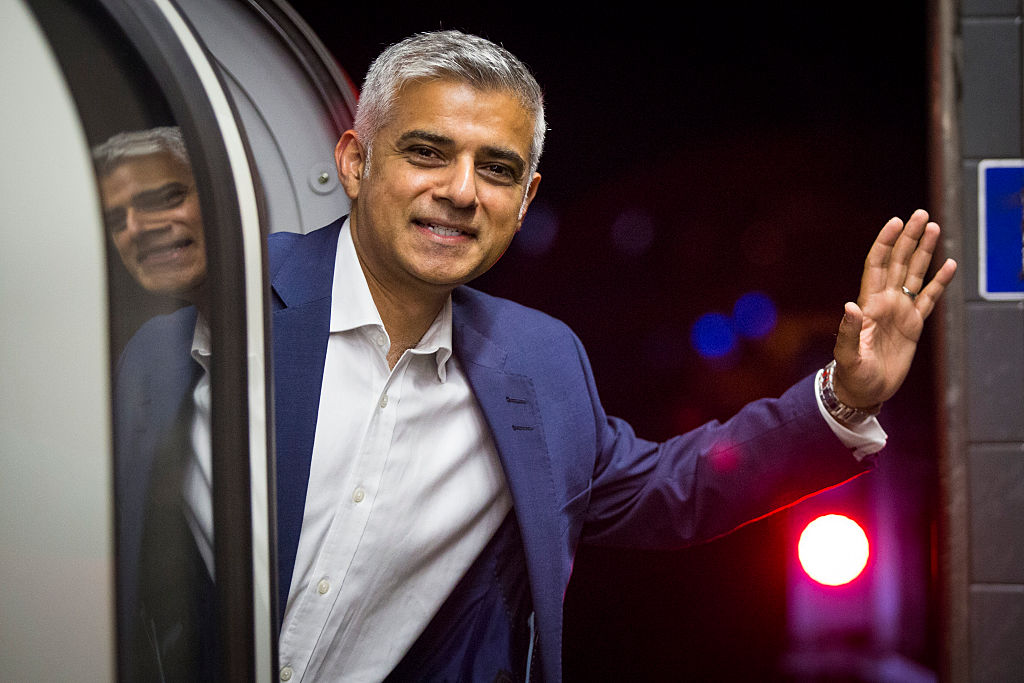For the next ten days, the local elections remain the focus of Tories across the country. But already attention in CCHQ is turning towards the next big contest facing the Conservatives: the London mayoralty in May 2024. The London party board met on Monday to fast-track the candidate selection process, with formal applications now expected to open in the next fortnight.
Party members based in the capital will get to choose from a shortlist of candidates after a series of hustings over the summer, with roughly half the party’s overall membership eligible to vote. A final candidate is expected to be chosen by late July, well before the party conference season to give the Conservative nominee ten months to campaign and raise their profile.
So, who will it be? The field of candidates thus far is a narrow one and the typical mix of familiar faces from Westminster and City Hall that one encountered in the past six mayoral races. Three candidates have formally declared: Samuel Kasumu, Andrew Boff and Nick Rogers. Kamusu was Boris Johnson’s race advisor before quitting over the Sewell Report in April 2021; Boff and Rogers both serve on the London Assembly. Paul Scully, the Sutton MP and Minister for London, is expected to formally announce his candidacy after the local elections.
Justine Greening, the former Education Secretary and onetime Putney MP, could still yet be the standard bearer for moderate Toryism. Daniel Korski, a former Cameron-era aide, has sparked whispers with a new audio series on London while fellow podcaster Rory Stewart is thought by some to be the type of candidate the party needs. Earlier this month he described a return to frontline politics as ‘definitely something I think about a lot’, though it is doubtful whether Stewart’s former party would wear such an unlikely return.
Some prominent London Tories favour an outsider with ‘star power’: the name of TV judge Rob Rinder has been floated, though the celebrity barrister has now distanced himself. That is perhaps unsurprising when one considers the toxicity of the Tory brand in London. Labour now have a mammoth 40-point lead over the Conservatives in the capital, with less than a fifth of voters saying they will vote blue next time. The long-time strongholds of Wandsworth and Westminster council both went red last year, with many of the 21 London Tory MPs expecting to lose their seats at the next general election.
Since the mayoralty’s inception, there has been much excited talk of a ‘big beast’ from the business world running for the mayoralty: the likes of a Richard Branson or Alan Sugar following in the footsteps of Michael Bloomberg in New York. But the Tories’ relationship with the business community has soured in recent years just as Labour has correspondingly stepped up their game under Rachel Reeves. There is no obvious candidate in the mould of Andy Street, the onetime boss of John Lewis, who won the West Midlands mayoralty under Tory colours against the odds in first 2017 and then again in 2021.
The irony is that the London Tories ought to have a fighting chance against the incumbent mayor next year. Talk to party members and they will happily reel off Sadiq Khan’s many failings: both the Met Police and London Fire Brigade in special measures, TfL declared bankrupt, council tax, traffic fines and the congestion charge all hiked, house-building sluggish, strikes three times as high as they were under Ken Livingstone. The Mayor can – and does – blame external factors like Covid. But even some Labour MPs privately admit that Khan has had an underwhelming seven years at City Hall.
This, some Tories believe, is the question that will define the contest: can they turn the mayoral race into a referendum on Sadiq Khan? They are pinning their hopes on the expansion of ULEZ – the Ultra Low Emission Zone – which is due to expand across all London boroughs from August, impacting some five million people. There are conflicting polls as to the scheme’s popularity but Tories across the capital have vehemently opposed the planned expansion. ‘White van man loathes it’ says one, ‘and we need him if we’re to take back City Hall.’ Social media will be a key front in the party’s campaign, with anti-Khan and anti-ULEZ articles getting regular traction online. ‘Facebook groups are where it’s happening’ says one London Conservative. Crime statistics, an emphasis on the Mayor’s lack of headline achievements and failures like his solar panel scheme are all likely to feature too.
Other factors are being cited as grounds for optimism too. The next contest will be fought under First Past the Post, rather than the two-stage supplementary vote system – potentially enabling a straight yes/no vote on Khan. There is a likely benefit in having Greg Hands, an experienced London activist as party chair. He is, in the words of one supporter ‘fanatical about Sadiq’s bus cuts’, with efforts under way to ensure that the CCHQ and the GLA Conservative group coordinate their efforts much better this time. There is also the potential impact of voter ID changes to consider. ‘Tower Hamlets will be voting Tory for the first time,’ jokes one Conservative.
One additional complication is the 2024 timeline: for the first time, the contest for City Hall is going to be held in a general election year. Inside Downing Street there is a debate as to whether a spring or autumn election would be preferable. The general election will obviously take precedence over the mayoral race but it offers a possible testing ground for campaign issues and techniques. Could, for instance, the Tories exploit the policy gaps on cannabis legalisation between Sadiq Khan and Keir Starmer? The timing also raises potential questions about issues like campaign finance. How will the parties approach spending restrictions and choose to allocate resources?
For these reasons, next year’s mayoral race is likely to be a much more national affair than the uninspiring Khan/Bailey contest of 2021.







Comments